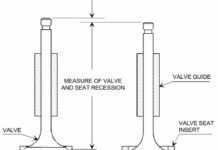But first, reader discretion advised: Politics and aviation sometimes intersect and I know by experience that some readers don’t like hearing about that. If you’re one of them, be forewarned.If anyone has doubts about general aviation’s vitality, this morning’s market opening should remove them. Since August, the Dow has declined by a staggering 5000 points and as I’m writing this, it’s still searching for the bottom. Everyone in the aviation business knows that a large percentage of aviation-related purchases are discretionary and made by people who invest widely, both in stocks and other instruments. It’s axiomatic that if $2 trillion or more of that wealth has evaporated, many of those purchases simply won’t happen. It’s anybody’s guess what shape a recovery will take and when it will happen. (I’m optimistic-I think recovery is certain eventually.)In the meantime, the U.S. electorate is going to have to snap out its sustained and historically shortsighted delusion concerning energy policy. Or should I say what energy policy? I was watching the two presidential candidates debate the other night and all I heard was claptrap about drilling and the usual lip service to nuclear and alternative energy supplies. When both candidates were asked what sacrifices they’ll ask the American public to make, both missed the opportunity to look the electorate in the eye and say: It’s you, you’re the problem and you need to wake up and change your habits.Here’s the logic. A friend of mine reported that his recently graduated son got his first job, a well-paying one at that. His first purchase was a large, high-testosterone pick-up averaging maybe 18 MPG at best. He’s a white-collar guy, not a tradesman, so he needs a pick-up like Britney Spears needs a haircut. He bought the truck despite $4 a gallon gas, which suggests to me that to him, gas isn’t very expensive, or at least expensive enough to make him change his behavior. The fact that the price of oil is now in retreat only makes this worse and sends the wrong signal to car buyers: Oil is cheap, it’s OK to waste it again. Moreover, it’s still OK to send money to Saudi Arabia and Russia to pay for it all.Until consumers change that kind of behavior, the single largest economic and security threat to the U.S. will only grow worse and that’s our increasing dependence on imported oil. Everyone agrees that we have to fix this five-alarm problem, but no one has the guts to say what needs to be done.And that is, unfortunately, an additional tax on automotive gasoline that forces meaningful change in the market by tripling or quadrupling fleet fuel economy. At NBAA earlier this week, I had dinner with some staffers from the U.K.-based Flight International who reported paying $11 a gallon for gas. Interestingly, one of them actually drove more miles a year than I do, but his car averaged 60 MPG. On a dollars-per-mile basis, he’s probably paying lower fuel costs per mile than most Americans are. He’s also spewing less pollution into the atmosphere than I do.That’s so because the Brits, like all European countries, hit fuel hard with taxes-way too hard for U.S. tastes. This country would never tolerate that level of taxation and it’s probably not needed to change car buying habits anyway. Would $5 or $6 gas do it? I’m not sure, but it’s plain to see that $4 gas won’t. Our single best hope to sharply reduce dependence on imported oil is a much higher fleet economy average and a rapid transition to plug-in hybrid technology of some kind, probably powered by a new generation of nuclear power plants. Detroit automakers haven’t found the economic sweet spot for these cars for various reasons. But if the price of gas goes to north of $5 or $6, watch how fast they’ll move.So what’s the aviation connection? Stable oil prices in a world where petroleum demand flattens or even declines. Airplanes of all kinds will, for the foreseeable future, depend on liquid fuels. Cars can migrate to hydrogen, to battery and engine hybrids or gaseous fuels, charged by wind or nuclear, and the sooner they are forced in that direction, the better, especially for aviation interests. And it’s no bad thing if Russia has less money with which to sow grief around the world.If I were setting this policy, I wouldn’t tax aviation fuel any more than it already is. Aviation use of gasoline is already in decline, sharply, thus there’s no argument to change behavior. I would simply peg the price of aviation gasoline to the price of road fuel. Since leaded avgas is certain to disappear, I think this is one way to look at it realistically. By the way, revenues generated by an additional gasoline tax could fix our crappy bridges and potholed roads and maybe fund part of T. Boone’s windmill project. A few bucks thrown at the deficit wouldn’t hurt, either.For this to work, the country has to grow up. And fast. At the moment, we are seriously screwed. The finance system is in shambles, fiscal policy is a mess and the deficit is out of control. Shipping more money to Saudi Arabia only makes it worse and threatens the very bedrock of U.S. security.Americans have to learn to tune out-or at least rationally analyze and think through-the constant, knee-jerk drumbeat that all taxes are bad and are thus to be cut, avoided or ignored. Pre-election, don’t expect either candidate to give voice to this reality, but we have to accept that out-of-control deficits place us in ever more peril and this is abetted by the lack of any energy policy. There are real sacrifices ahead for all of us and the end of cheap gas–and yes, $4 is cheap–is just one of them.Whichever party is elected in three weeks will have to confront this, one way or another. Our finances are in such a mess that the next president won’t have much operating room for many years to come. Acting on a meaningful energy policy by curbing oil consumption and forcing more efficiency into the economy is one thing that can be done.If it’s not done, the entire country-not just GA-is headed over a cliff.
WORLD'S PREMIER INDEPENDENT AVIATION NEWS RESOURCE
- Aviation News
- Recent Updates
- Blog
- Multimedia
- Features
- AllAdventure FlyingAVWeb ClassicsCEO of the CockpitEye of ExperienceFrom The CFILeading EdgeMemoirPelican’s PerchProfilesSay Again?The Pilot’s LoungeBrainteasersCareersCommentaryCompany ProfileFlying Media OffersFun FlyingQuestion of the WeekReader MailShort FinalThis Month In Aviation Consumer MagazineThis Month In IFR Magazine
- Shows & Events
- Flight Safety
- Ownership
- Avionics
- Advertise
© 2024 Firecrown. All rights reserved.


































